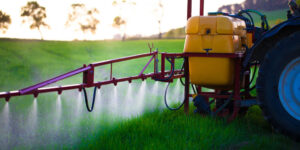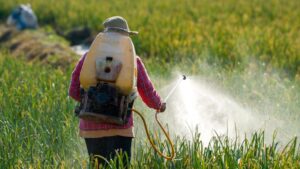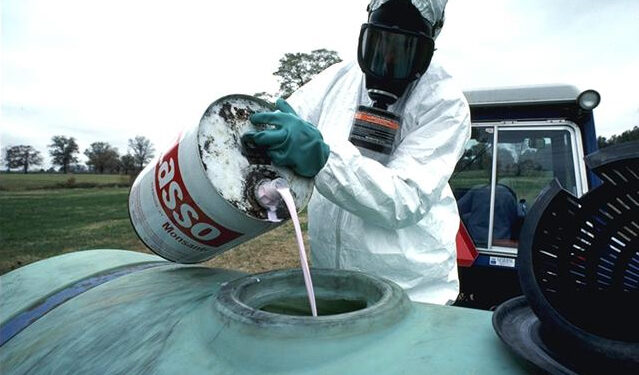The retail price of pesticides is high, but buying them can feel overwhelming. How do you know which pesticides are the best for your needs? What are the different types of pesticides and how do they work? What are some good ways to chip away at the cost? Keep reading to learn more about what you can expect to pay when buying these products, as well as some hidden costs you might not expect.
What is a pesticide?
A pesticide is any substance used to kill pests. Pesticides are the gold standard when it comes to killing pests. They are extremely effective and safe when used according to label instructions (and regulations). However, they should be used carefully, as their use can have negative effects on humans and the environment. Pesticides are chemicals that are designed to kill pests by damaging their nervous and digestive systems.
This can result in death from dehydration, malnourishment, and eventual rotting. Many pesticides also have an impact on humans by damaging the environment, including water supplies, plants, and animals. Pesticides are sold for a variety of uses, including controlling insects and weeds (pests), controlling unwanted plants (weeds), and controlling unwanted animals.
Some types of pesticides are designed to be used indoors, others outdoors. Some types of pesticides kill pests quickly, while others may take a few weeks for full effect. Some are relatively safe for humans, while others are very dangerous. If a pesticide is labeled for a specific use, it is intended to be used only for that purpose. Some pesticides may be used for an unapproved purpose, through an illegal or informal channel.
How can you save on pesticides?
When buying pesticides, try to spend less money by shopping around, often on sale, and by buying in bulk. Often, pesticide brands are sold by volume, in 10-pound bags, 50-pound bags, or larger sizes. Some home improvement stores, like Home Depot, sell these bags in bulk and sell them at a discount. If you buy a pesticide in bulk, that is usually much cheaper than buying it in smaller quantities.
Try to buy pesticides in volume that you will use frequently, rather than a one-time use product. The less you buy, the cheaper it will be to peruse. Another way to save on pesticides is to buy products in smaller quantities. Most homeowners will use a few gallons of pesticides in a season, but professionals often need much less. If you have a smaller yard or fewer areas to control, you can save money by buying less.

Types of Pesticides
- Contact Killers – These kill pests by direct contact, usually with an insect-receiving plant or the pest itself. This type of product is highly dangerous and should be used with extreme caution. You should avoid using this type of product in the vicinity of your house for fear of harming humans or the environment.
- Systemic Killers – These pesticides are absorbed into the plant and are then distributed throughout the plant. The plant is usually unaware that the foreign substance has entered its tissues. When the plant is consumed by humans or animals as food, we or the animals may become poisoned.
- Pest Repellants – These products are designed to repel pests from plants. These come in many forms, such as powders, liquids, and sprays. Some plants may produce their own repellants, but it may be useful to use a repellent to protect your plants from damage.
- Insect Growth Regulators – These are used to disrupt the life cycle of insects, inhibiting the reproductive process.
- Seed Treatments – Some seeds are coated with chemicals that repel pests and help the seeds germinate. This is an example of a plant protection method.
Which pest control products cost more?
Every product is priced differently and depends in part on the ingredients and quality of the pesticides. Professional-grade products are usually more expensive than consumer-grade products. Some pesticides, like the ones that kill ants or other small insects, are “materials costs only” products.
This means they are not very expensive. This type of product is often the cheapest to buy. Another thing to keep in mind is the number of pesticides needed to apply to your property. The higher-quality products are often much more concentrated than lower-quality products, meaning you may need to apply them more often, which adds up in cost.
Hidden costs of buying pesticides
- License Fees – Some states require a license to possess certain pesticides. While not required in all cases, having a license often makes it easier to obtain the product.
- Storage – Most pesticides come in a container that must be kept in a cool, dry, and out-of-the-way place, such as under a bed or in a spare closet. If you do not keep it in the right place, the product will become unusable and you will have to buy a new bottle. This incurs storage costs.
- Pump – Many pesticides come in a liquid form, either a concentrate or a diluted solution. If the pump breaks, it becomes difficult to dispense the product, which incurs pump costs.
- Label Scrutiny – Consumers have the right to scrutinize the label of a pesticide, including the number of active ingredients, the components of the product, and any warnings. Be sure to read the label and be aware of any restrictions, such as proper age limits or acceptable applicators.
- Time to Apply – In most cases, you will need to spend time applying the pesticides to your property. Some products require shaking and putting in a sprayer, while other products are ready to use right out of the bottle. This time is wasted, which adds up with regard to cost.

Final Words
When it comes to controlling pests, nothing is better than pesticides. They are designed to kill just about any insect, from mosquitoes to termites, from beetles to wasps, from ants to grasshoppers, and from spiders to worms. Pesticides are one of the most effective ways to control pests, but they can be dangerous. It is important to follow all label instructions and store pesticides safely.
If you do this, you should be able to safely enjoy the benefits of pesticides without having to worry about the dangers. Pesticides are effective, but they are dangerous. There are many types of pesticides and they can be dangerous to humans and the environment if they are not used properly. Pesticides are expensive to buy and use, and they can also be dangerous to humans and the environment.











